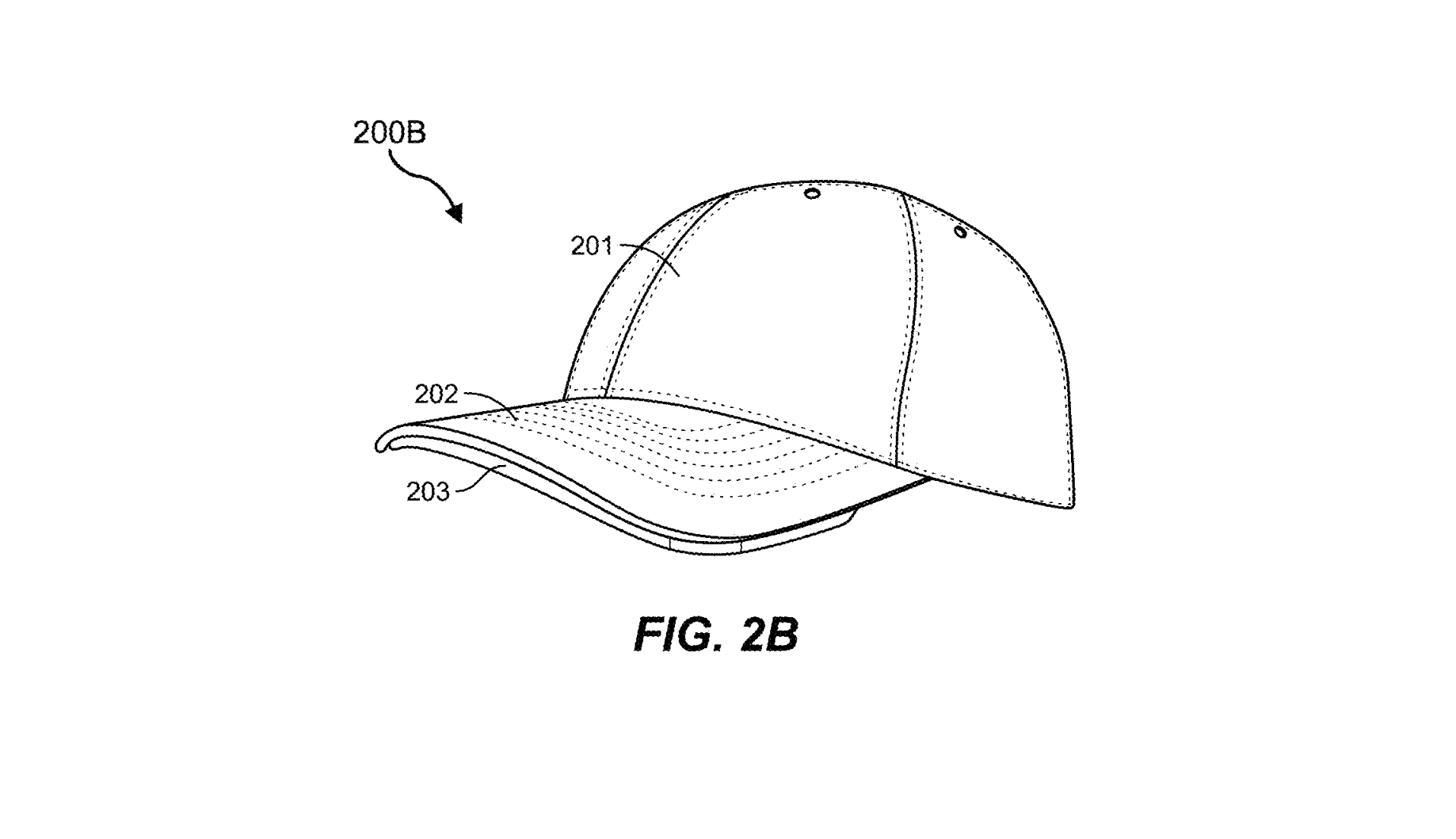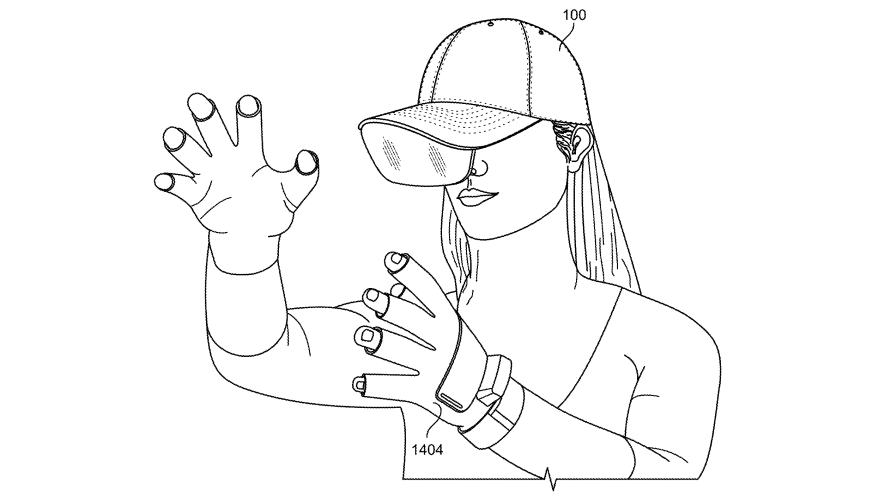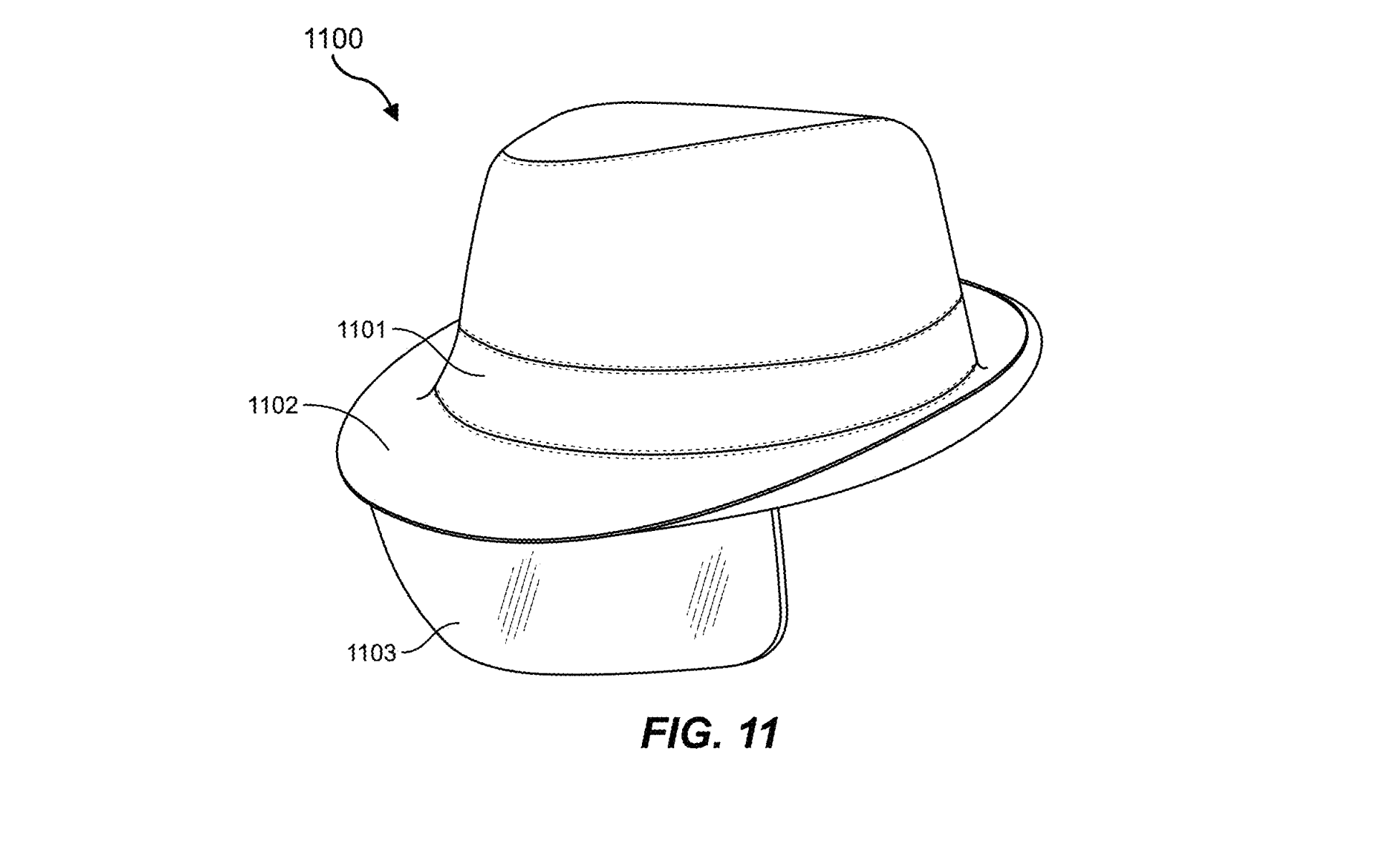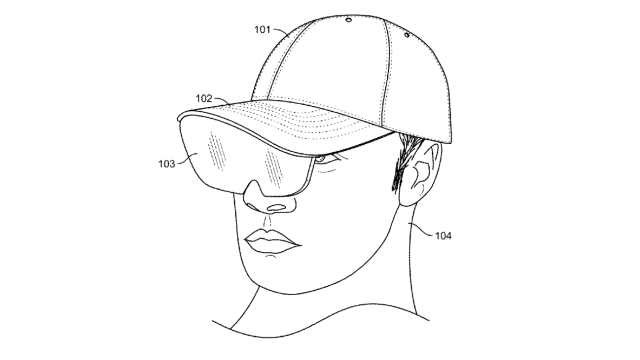One of the biggest hurdles for augmented reality devices is design: No one wants to wear an obvious gadget on their face. Realising the issues Google Glass had with gaining consumer traction, it seems Facebook may embrace a unique design for a future wearable. Folks, it’s a baseball hat.
In a patent that was originally filed back in 2019 and finally published this week, originally spotted by Founders Legal, Facebook describes the design for its forward-thinking headgear as an alternative to traditional AR headsets and goggles which the company claims are “sometimes thick, heavy, and unbalanced and/or may generated excessive heat that is uncomfortable against the user’s skin.”
So instead of a more sci-fi design, Facebook is possibly creating a hat that uses its brim to hold a “display subsystem” that can be folded up or down as needed. In its patent filing, Facebook uses a baseball hat to demonstrate the concept, but further descriptions and illustrations describe a design that could be applied to a wide range of hat styles, including cowboy hats, visors, and, of course, fedoras.

It might look extremely silly, but in its patent filing Facebook says there are some notable advantages of a design like this. It makes it easier to position potentially hot electronics farther away from someone’s face, thereby increasing overall comfort and wearability. Also, by using brimmed hats, Facebook says there is more surface area to install AR components, potentially allowing Facebook to design a more advanced or sophisticated device.
Because the brim of a hat extends outward from the user’s face, Facebook says there’s also more room to include things like cameras for eye, face, and even body-tracking. But what might be the biggest advantage to designing an AR headset around a brimmed hat is that if you’re not using the attached display, you can simply flip it up and make it look like a regular hat — or at least that’s the idea.

Facebook’s AR vision doesn’t end there. The company also imagines its AR hat could be able to connect to additional AR accessories like controllers, phones, computers, or other haptic devices, which you can see in the wonderfully illustrated image above. This means Facebook’s AR hat could serve as a wearable computer designed to power a whole new generation of AR tech.
And in case you’re worried about that flip-down display blocking your sight when in use, Facebook says the display may also be semi-transparent, allowing you to see the real world and a computer overlay at the same time.

Now as easy as it is to poke fun at Facebook’s AR hat patent, it’s hard to fault Facebook for trying. Microsoft, Apple, HTC, and more are all working on creating their own next-gen AR headsets, so it’s clear the push for connected AR devices is going to be a major trend in the coming years. And with no company having really nailed the design for AR glasses that are comfortable, stylish, and easy to use, it can’t hurt to think a bit outside of the box.
I think AR devices that look more like glasses than hats will eventually win out, but while we wait for miniature displays and projectors to improve, at least we have this patent filing for entertainment.
